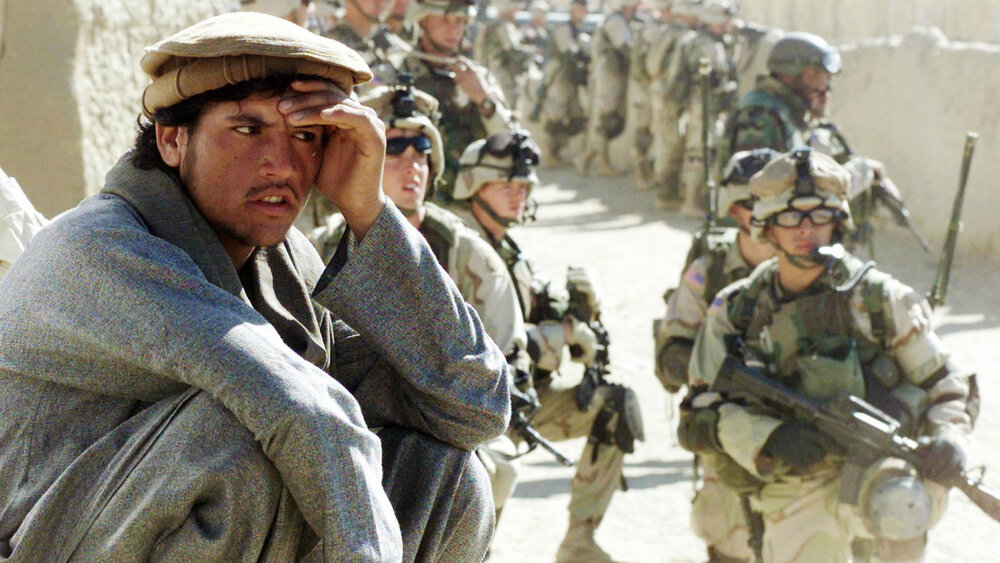World slams ICC’s decision to not investigate U.S. war crimes in Afghanistan

In a stark reminder of how the U.S. military industrial complex puts pressure on international watchdog bodies to toe its line, International Criminal Court (ICC) has rejected a request to initiate investigation into U.S. war crimes in Afghanistan.
In a decision that has been blasted as “deeply flawed” and a “devastating blow for victims”, ICC judges on Friday turned down a request by the court’s prosecutor to start an investigation into war crimes committed by the U.S. and other actors in war-ravaged Afghanistan.
In a detailed ruling, judges said an investigation “would not serve the interests of justice” because an investigation and prosecution was unlikely to be successful, as entities like the U.S. forces, Afghan authorities and the Taliban, are not expected to cooperate.
Global watchdog Human Rights Watch (HRW) condemned the ruling, calling it “a devastating blow for victims who have suffered grave crimes without redress.”
In a statement, the Trump administration hailed the decision not to investigate U.S. personnel as “a major international victory, not only for these patriots, but for the rule of law.”
Pertinently, the U.S. government had recently threatened the ICC and its judges if it opened case against the U.S. personnel in war-torn Afghanistan.
“The U.S. will withdraw or deny visas to any ICC personnel investigating possible war crimes by U.S. forces or allies in Afghanistan,” U.S. Secretary of State Mike Pompeo said last month.
The court, which has its headquarters in The Hague, responded that it was an independent and impartial institution and would continue to do its work “undeterred” by U.S. threats.
ICC did hit back then but soon felt intimidated by mafia-style threats by the administration in Washington.
The ICC’s decision comes just days after the U.S. government revoked the ICC chief prosecutor Fatou Bensouda’s visa because the investigation involved crimes committed by the U.S. forces.
Bensouda’s request to open an investigation said there is information that members of the U.S. military and intelligence agencies "committed acts of torture, cruel treatment, outrages upon personal dignity, rape and sexual violence against conflict-related detainees in Afghanistan and other locations, principally in the 2003-2004 period."
She also said that the Taliban and other insurgent groups have killed more than 17,000 civilians since 2009, including almost 7,000 targeted killings.
She also alleged that Afghan security forces have tortured prisoners in government-run jails.
The ICC decision does acknowledge that the November 2017 request from Bensouda to open a probe “establishes a reasonable basis to consider that crimes within the ICC jurisdiction have been committed in Afghanistan and that potential cases would be admissible before the Court,” said a report in AP.
In a written reaction, the court’s prosecution office said it “will further analyze the decision and its implications, and consider all available legal remedies.”
The ICC judges claimed that their decision was influenced by the prospect of investigators having to deal with challenging investigations, a lack of ready state cooperation and budgetary constraints, the AP report said.
Patrick Baudouin, president of the International Federation for Human Rights, called the rejection a "dark day for justice" and a "shocking decision, which is based on a deeply flawed reasoning."
Sima Samar, the chairman of Afghanistan's Independent Human Rights Commission, said the decision was a disappointment for victims.
Human Rights Watch said the ruling establishes a dangerous precedent. “The judges' logic effectively allows states to opt out on their obligation to cooperate with the court's investigation,” said Param-Preet Singh, the group's associate international justice director.
"This sends a dangerous message to perpetrators that they can put themselves beyond the reach of the law just by being uncooperative."
Amnesty International said the ICC’s decision not to authorize an investigation into crimes committed in Afghanistan under international law marks a shocking abandonment of victims and will further weaken the court’s credibility.
“Afghanistan has been witness to heinous crimes committed with near-absolute impunity, across the country, for more than a decade and a half. The ICC’s decision today is a shocking abandonment of the victims which will weaken the court’s already questionable credibility,” said Biraj Patnaik, South Asia Director at Amnesty International.
“None of the reasons given by the ICC judges justifies this decision. The gravest crimes can only ever be investigated in trying circumstances. If anything, the court’s reluctance to proceed with investigations in the face of such constraints only reveals its overreach and signals its weak resolve,” said Patnaik.
The successive U.S. governments have always arm-twisted global watchdog bodies, especially the ICC, and prevented it from investigating its crimes against humanity.
“If the ICC begins and is allowed to investigate crimes against humanity committed by the West, the entire twisted concept of the U.S. and Europe being pioneers of freedom and democracy could easily and quickly collapse,” wrote Andre Vltchek in an article in New Eastern Outlook.
“Even criticism by Washington, Paris or London of countries such as Venezuela, China or Russia, for their ‘human rights violations’, would become absurd and grotesque. Entire concept of ‘regime change’ could clearly be exposed for what it always really was – lawless gangsterism,” Vltchek added.
He said no country in the post-WWII era has committed so many crimes against humanity, and supported so many genocides, as the U.S.
“The ‘foreign policy’ of the U.S. is directly derived from colonialist policies of the former European powers. Therefore, crimes against humanity committed by the West have never stopped; never stopped for centuries,” he noted.

Leave a Comment